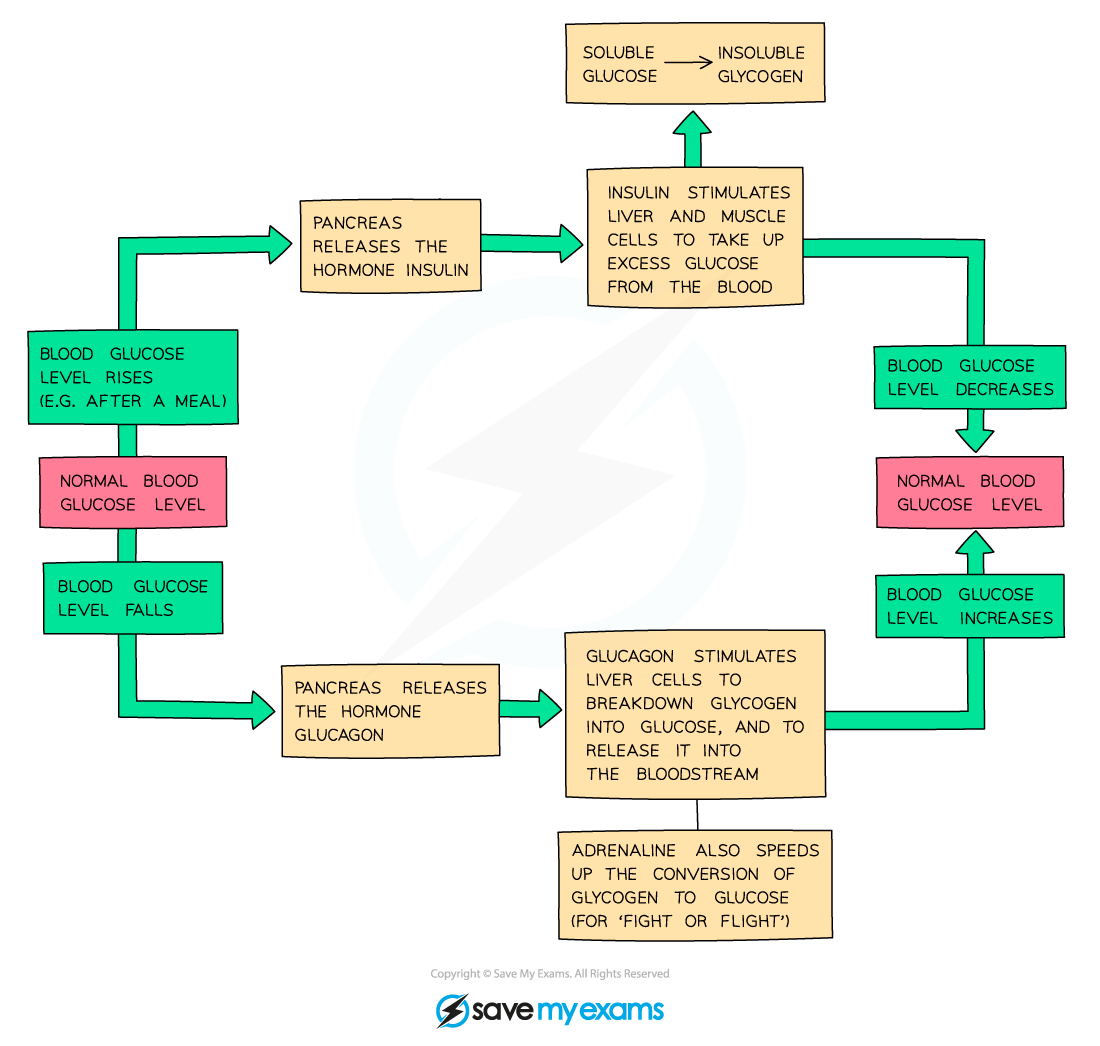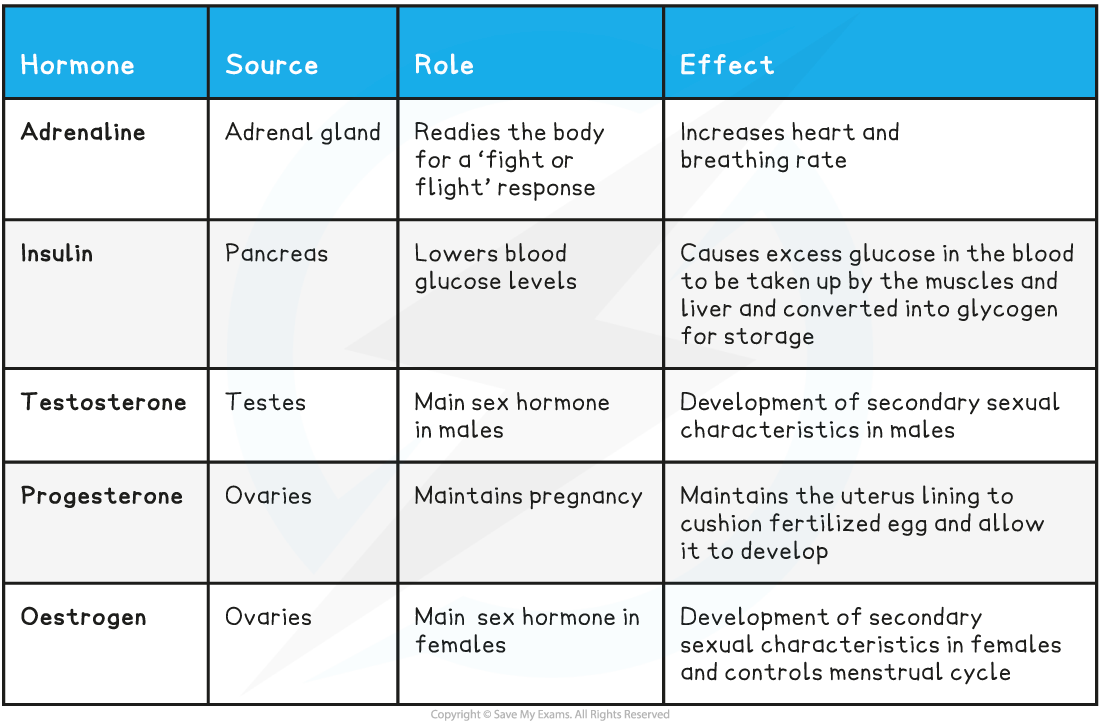The Role of Hormones: Basic
- A?hormone?is a chemical substance produced by a?gland?and?carried by the blood, which alters the activity of one or more specific?target organs
- They are chemicals that transmit information from one part of the organism to another and bring about a?change
- The following hormones are of great importance in humans:
- Adrenaline
- Insulin
- Testosterone
- Progesterone
- Oestrogen
Adrenaline and how it prepares the body for action
- Adrenaline is known as the?'fight or flight'?hormone as it is produced in situations where the body may be in?danger
- It causes a?range of different things?to happen in the body, all designed to?prepare it for movement?(i.e. fight or flight).
- These include:
- An?increase in heart rate and breathing rate?- ensures?glucose?and?oxygen?can be delivered to?muscle cells?(and carbon dioxide can be taken away from muscles cells) at a?faster rate
- Diverting blood flow towards muscles?and away from non-essential parts of the body such as the alimentary canal - ensures an?increased supply of the reactants of respiration?(glucose and oxygen)
- Dilation of the blood vessels inside muscles?- ensures?more blood?can circulate through them (again, supplying?more glucose and oxygen)
- Breaking down of stored glycogen to glucose?in the liver and muscle cells, with glucose released by the liver being transported to active muscle cells - ensures a?higher blood glucose concentration?for?increased respiration?in muscle cells (providing?greater energy for movement)
Insulin and how it controls blood sugar
- Blood glucose concentration must be kept within a?narrow range, so it’s another example of?homeostasis?(like the control of core body temperature)
- Too high a level of glucose in the blood can lead to cells of the body losing water by osmosis, which can be dangerous
- Too low a level of glucose in the blood can lead to the brain receiving insufficient glucose for?respiration, potentially leading to a coma or even death
- The?pancreas?and?liver?work together to?control blood glucose levels
- To carry out this role, the pancreas acts as an?endocrine gland?(making and secreting?hormones?into the?bloodstream), although it does also plays a vital (but separate) role in digestion (making and secreting enzymes into the digestive system)
- If the blood glucose concentration gets too high:
- Cells in the pancreas detect the increased blood glucose levels
- The pancreas produces the hormone?insulin, secreting it into the blood
- Insulin stimulates?muscles?and the?liver?to?take up glucose?from the bloodstream and?store it as glycogen?(a polymer of glucose)
- This?reduces?the concentration of glucose in the blood back to normal levels, at which point the pancreas stops secreting insulin
- If the blood glucose concentration gets too low:
- Cells in the pancreas detect the decreased blood glucose levels
- The pancreas produces the hormone?glucagon
- Glucagon causes the?glycogen?stored in the?liver?to be?converted into glucose?and released into the blood
- This?increases?the concentration of glucose in the blood back to normal levels, at which point the pancreas stops secreting glucagon

The regulation of blood glucose levels
Testosterone
- Testosterone is produced in the male testes
- It is responsible for the development of secondary sexual characteristics in males
Progesterone
- Progesterone is produced in the female ovaries
- It is responsible for maintaining the uterine lining during pregnancy
Oestrogen
- Oestrogen is produced by the female ovaries
- It is responsible for the development of secondary sexual characteristics in females and regulating the menstrual cycle
Important Hormones in the Human Body Table

Exam Tip
It is worth learning this list of effects of adrenaline on the body as it is a fairly common exam question and can be worth several easy marks.Also, be careful when answering questions on the control of blood glucose levels - the terms glucagon and glycogen are very often mixed up by students as they sound similar.
- Glucagon is a?hormone
- Glycogen is a?polysaccharide?(i.e. the polymer of glucose that acts as a glucose storage molecule)
Learn the differences between the spellings and what each one does so you don't get confused in the exam!
转载自savemyexam










